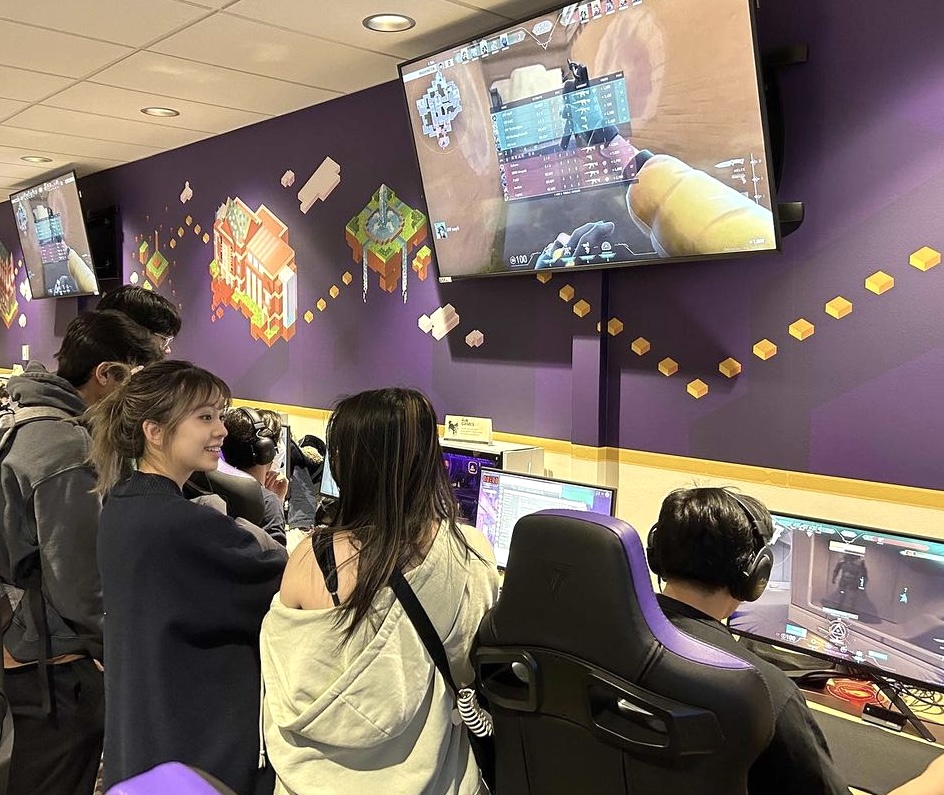The Role of Collegiate Esports: Enhancing Education, Social Interaction, and Career Development
Cardi Ji, Rebecca Wang, & Yuhan Wang
In the past few decades, esports has evolved from a hobby to a global phenomenon, with its influence far beyond the gaming industry. Nowadays, collegiate esports has become an essential component of social, competitive, and academic activities in many universities. This article will mainly explore the impact of collegiate esports on students.
“When schools invest in esports teams, they’re investing in high-level hardware that also integrates into STEM and STEAM programs, which means students wind up having more opportunities to get hands-on experience and learn in-demand skills for careers. Many of the skills that students develop by participating in esports also translate to STEAM and STEM career tracks, according to UC Irvine research” (Ascione, 2024).
From the eSchool News, we know that by providing funding for the top-tier gear required for esports, educational institutions improve their STEM and STEAM curricula while simultaneously fostering the growth of competitive gaming. This investment serves two purposes: it gives students access to state-of-the-art technology and valuable practical experience, which helps them acquire marketable skills that are applicable to modern job routes. Moreover, UC Irvine’s research suggests that esports players’ acquired skills, like technical proficiency, strategic thinking, and teamwork, are immediately transferable to STEM and STEAM industries. This link highlights esports’ wider educational benefits and establishes it as a major factor in preparing students for employment in STEM fields (science, technology, engineering, arts, and mathematics).
“During all the years of university growth, the extracurriculum played a major role in sustaining collegiate values. The athletic teams, fraternities and social clubs, theater groups, newspapers, and magazines, all of these various enterprises not only allowed young undergraduates to emulate and prepare for life, but also provided them with experiences that they knew to be profoundly human” (Rudolf, 1990).
In college life, extracurricular activities, including various teams and organizations, are important in maintaining university values. These activities not only provide students with opportunities to simulate future life but also allow them to gain rich life experiences. Similarly, the role of esports in college life is also the same. Esports is not only an entertainment activity but also exercises and enhances the thinking ability, reaction ability, coordination ability, and team spirit of participants through high-tech equipment and software. At UW’s esports center HUB, students have learned teamwork and strategic thinking through participating in esports activities, which are valuable for their future careers and academic research. At the same time, it also creates a positive social atmosphere and promotes communication and cooperation among students.
“I think participating in esports has greatly enriched my college life. It not only taught me teamwork and strategic thinking but also provided me with challenges and a sense of achievement that was different from my studies. Through esports, I can interact with friends from various countries, which makes my social circle more diverse.”
According to the interviews, students who play collegiate esports gain important abilities, including fast decision-making, strategic planning, and productive teamwork. These abilities show the important overlap of capabilities between esports and academic endeavors, as they not only improve their gaming experience but also have a good impact on their academic success, illustrating the transferable skills between esports and academics. The dual effect of esports on students’ mental health, providing both stress relief and potential risks if not appropriately managed, highlights the need to maintain a balance between gaming and life. Balancing esports and academic responsibilities is essential, and students need to develop strong self-control and time-management skills to ensure that gaming doesn’t interfere with their studies. Esports can also help expand college students’ social networks and interact with peers from diverse backgrounds, thereby improving interpersonal skills and multicultural awareness.
Thick institutions are not just organizations that provide services or activities. They create a strong sense of community, promote personal growth, and integrate multiple aspects of life, such as education, social interaction, and personal development. UW’s Esports Center HUB is such an institution.

This is an image of the UW esports center HUB. As a thick institution, it is not just about fun and games; it is also a place where students learn and grow. The facilities and environment here are designed to promote teamwork and social interaction, which are crucial elements of esports education. Students enhance their strategic thinking and teamwork skills through these interactions, preparing them for future challenges. This integration of academic and entertainment activities is a hallmark of UW. This modern esports center is equipped with high-performance computers and comfortable gaming chairs, demonstrating UW’s emphasis on esports facilities. Some students wear headphones and operate the competition seriously, while others communicate and watch, establishing an active social environment.
As an emerging cultural phenomenon, collegiate esports is changing the face of modern collegiate life. It not only provides students with opportunities for entertainment, competition, and socializing but also offers new possibilities for their academic and career development. With the continuous development of the esports industry, collegiate esports will continue to become a model of academic and competitive integration, shaping the future of education and entertainment.
AI Disclaimer:
We used ChatGPT for grammar checks and polishing. Our story ideas are our own.
Reference:
- Ascione, L. (2024, March 7). Friday 5: How esports engages students. eSchool News. https://www.eschoolnews.com/digital-learning/2024/03/22/friday-5-how-esports-engages-students/
- Rudolf. (1990). The American College and University.
Media Attributions
- 2IyIvgRKwHxaIY7kf7e4l5qJ2UswQuXeb_B_CjTNcB5eLirINwAjGGBG_2jI9aVXrGHTAOB89yk9VLv8w99u9EU-ap27EjzELaEyGa9MDdm3Doz6jD3rNDc6-2_x

